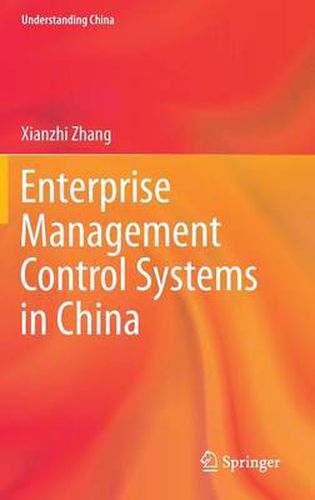Readings Newsletter
Become a Readings Member to make your shopping experience even easier.
Sign in or sign up for free!
You’re not far away from qualifying for FREE standard shipping within Australia
You’ve qualified for FREE standard shipping within Australia
The cart is loading…






This title is printed to order. This book may have been self-published. If so, we cannot guarantee the quality of the content. In the main most books will have gone through the editing process however some may not. We therefore suggest that you be aware of this before ordering this book. If in doubt check either the author or publisher’s details as we are unable to accept any returns unless they are faulty. Please contact us if you have any questions.
This book provides an exhaustive view of China’s Management Control Systems (MCS), examining the development of theory and practice and presenting a framework that integrates China’s unique enterprise regulations, corporate culture and managerial mindset into management control systems. The work offers detail about the effects of China’s economic reforms on management control in Chinese enterprises and insightful comparisons with Western theory and Western examples. Readers will discover important themes and the evolution of theory in MCS, including discussions of frameworks and the links between management control and economics, management, accounting, cybernetics and system theory.
Early chapters explore management control in Chinese enterprises during the period, especially the demands of (guidance, enforcement and external regulation) and the demand for (stakeholders, managers, investors) management control. The work moves on to explore Western management control theory and research, including an examination of the evolution of internal control theory.
The author presents detailed perspectives on the elements of management control systems and introduces masterful new ideas and methods through four general control models and ten critical elements in the management control process. A view of management control in various different types of enterprise is presented, from special enterprises and small to medium enterprises to non-profit organizations. The standards for enterprise management control are explored.
This work is a valuable practical guide for corporate management teams who wish to develop and execute their own internal control strategies. It will also provide foreign researchers, policy-makers and practitioners with a new perspective on Chinese management control experiences.
$9.00 standard shipping within Australia
FREE standard shipping within Australia for orders over $100.00
Express & International shipping calculated at checkout
This title is printed to order. This book may have been self-published. If so, we cannot guarantee the quality of the content. In the main most books will have gone through the editing process however some may not. We therefore suggest that you be aware of this before ordering this book. If in doubt check either the author or publisher’s details as we are unable to accept any returns unless they are faulty. Please contact us if you have any questions.
This book provides an exhaustive view of China’s Management Control Systems (MCS), examining the development of theory and practice and presenting a framework that integrates China’s unique enterprise regulations, corporate culture and managerial mindset into management control systems. The work offers detail about the effects of China’s economic reforms on management control in Chinese enterprises and insightful comparisons with Western theory and Western examples. Readers will discover important themes and the evolution of theory in MCS, including discussions of frameworks and the links between management control and economics, management, accounting, cybernetics and system theory.
Early chapters explore management control in Chinese enterprises during the period, especially the demands of (guidance, enforcement and external regulation) and the demand for (stakeholders, managers, investors) management control. The work moves on to explore Western management control theory and research, including an examination of the evolution of internal control theory.
The author presents detailed perspectives on the elements of management control systems and introduces masterful new ideas and methods through four general control models and ten critical elements in the management control process. A view of management control in various different types of enterprise is presented, from special enterprises and small to medium enterprises to non-profit organizations. The standards for enterprise management control are explored.
This work is a valuable practical guide for corporate management teams who wish to develop and execute their own internal control strategies. It will also provide foreign researchers, policy-makers and practitioners with a new perspective on Chinese management control experiences.